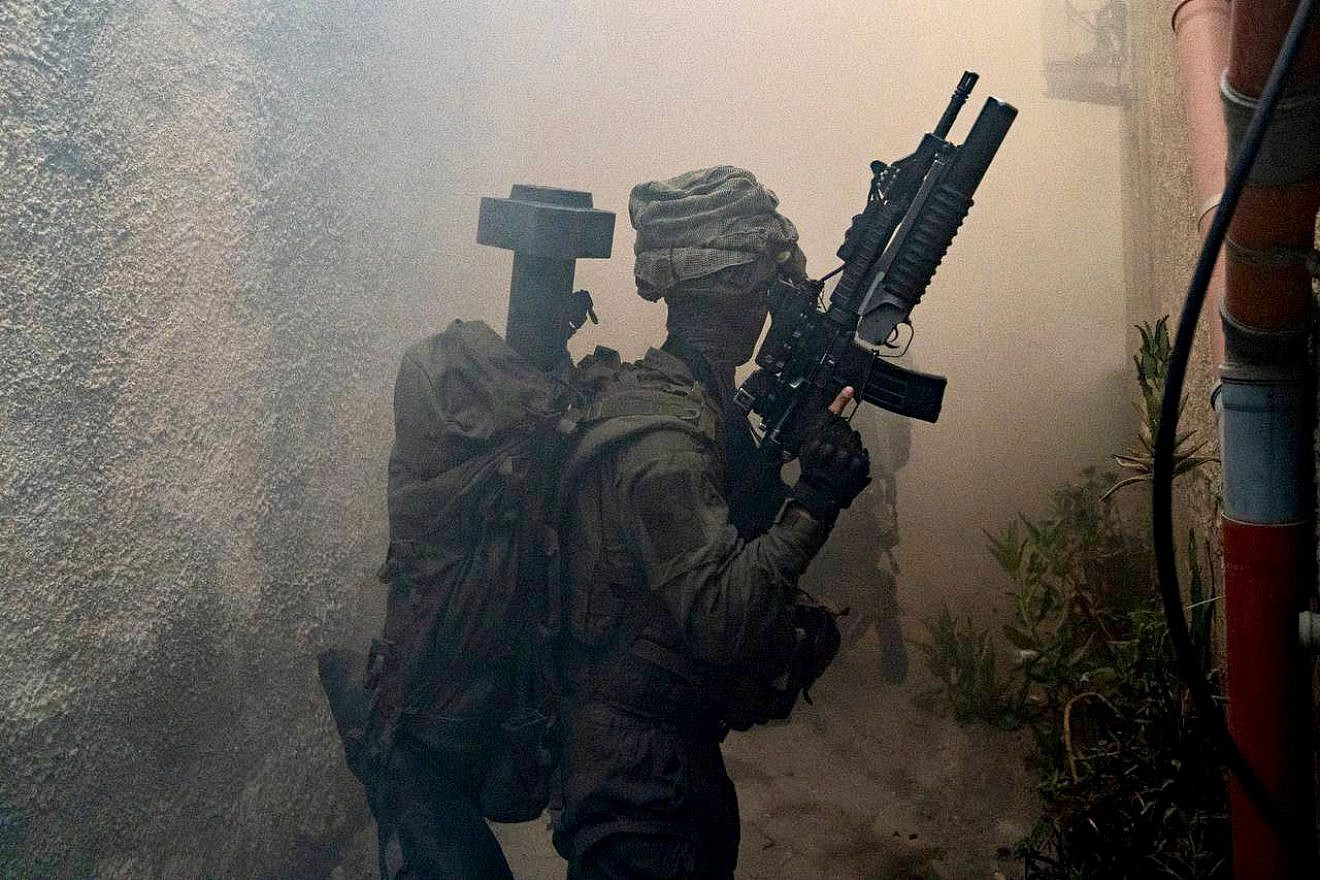A spokesman for the U.S. National Security Council, which advises U.S. President Joe Biden, released a statement on Monday in support of the Israel Defense Forces’ ongoing counterterrorism operation in Jenin.
“We support Israel’s security and right to defend its people against Hamas, Palestinian Islamic Jihad and other terrorist groups,” it states.
The council added that it is monitoring the situation closely.
Sources said on Tuesday afternoon that the operation was getting close to winding down. But Israeli officials said it would probably continue at least until Wednesday as security forces continue to arrest members of terrorist groups and destroy their infrastructure.
As of Tuesday morning, more than 100 wanted suspects have been arrested, and eight confirmed terrorists have been killed.
“We have no intention of occupying the [Jenin] refugee camp, and this is not an operation against the Palestinian Authority,” said Brig. Gen. Daniel Hagari, a spokesman for the IDF. “We will create a sequence of operations in the northern part of the West Bank.”
Tor Wennesland, the U.N special coordinator for the Middle East Peace Process, announced on Twitter he had been “in direct contacts [sic] with all relevant parties” with an eye towards de-escalation.
“The current escalation in the occupied West Bank is very dangerous [and] follows months of mounting tensions,” he wrote, noting that the operation “reminds us of the extremely volatile [and] unpredictable situation across the occupied West Bank.”
Lynn Hastings, the U.N. humanitarian coordinator for Palestinian-controlled areas, said she was “alarmed” by the scale of the operation in Jenin and slammed Israel’s use of precision airstrikes against terrorists in the “densely populated refugee camp.”
In Brussels, the European Union’s Middle East peace envoy said he was “very concerned” and following the situation in Jenin closely. E.U. Special Representative Sven Koopmans warned in a tweet of a “real threat of a major eruption” caused by “months of elscalating [sic] violence and increasing hopelessness” and called on “all parties” to protect civilians and respect international humanitarian law.
The U.K. government, in a statement published by the British consul-general in Jerusalem, likewise expressed “deep concern” and urged the IDF to “adhere to the principles of necessity and proportionality when defending its legitimate security interest.”
“Protection of civilians must be prioritised. Essential to ensure access for medical personnel,” the short missive reads.
The Organisation of Islamic Cooperation’s statement accused IDF troops of engaging in “war crimes” and “state terrorism.”
Israel’s Arab neighbors rushed to condemn the military action in Jenin.
A spokesperson for the Jordanian Foreign Ministry blasted Israel’s actions as a “clear violation of international humanitarian law, as well as Israel’s obligations as the occupying power.”
Meanwhile, Egypt denounced the counterterror raid “in the strongest terms” and charged the Jewish state with causing “civilian casualties” by using “excessive and indiscriminate” force.
For its part, the United Arab Emirates “strongly condemned” what it described as “attacks by the Israeli occupation forces on the Palestinian city of Jenin and its camp through air strikes and shootings.” Abu Dhabi’s Foreign Ministry demanded the “immediate halt of repeated and escalating campaigns against the Palestinian people,” while pressing Israeli authorities to “reduce escalation and avoid steps that exacerbate tension and violence.”
Notably, the foreign ministries of Bahrain and Morocco, both of which normalized ties with Israel under the auspices of the 2020 Abraham Accords, did not issue statements on the recent developments in northern Samaria.


























